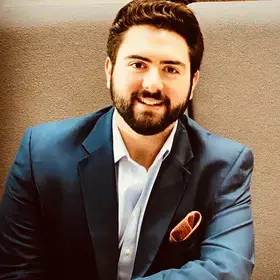Doing good for a living and serving her country to the greatest capacity is Deidra Strickland’s passion in life. Her career in law enforcement, and most recently at the Federal Bureau of Investigation (FBI), comes naturally for her. Columbia’s M.S. in Negotiation and Conflict Resolution program helped Strickland master the dynamics of negotiation and navigate complex conflicts. She recently discussed her role at the FBI and her experience studying at Columbia.
What are your roles and responsibilities as a special agent at the FBI?
As special agent of the Federal Bureau of Investigation, part of the U.S. Department of Justice, my duties consist of investigating violations of the federal laws of the U.S., collecting evidence in cases in which the U.S. is or may be a party of interest, and performing other duties imposed by law. Specifically, my current role is an acting supervisory special agent at FBI Headquarters in Washington D.C., within the Counterterrorism Division. I am also a team leader on the Threat Response Squad within the elite FBI New York Joint Terrorism Task Force (JTTF). I lead a team of special agents investigating acts of targeted violence, emerging domestic and international terrorism threats, and critical incidents. In addition, for special events, I am the liaison for this task force with the Crisis Management Squad. I create comprehensive operational plans, conduct briefings to deployed personnel and FBI executive staff, deploy to command posts, and serve as the principal operational team leader.
What attracted you to the world of law enforcement?
Becoming an FBI special agent was an elementary school dream! I knew about the role since the 4th grade. I am honored to be able to do good for a living, bring closure to victims’ families, disrupt terrorist activities, and serve my country to the greatest capacity. I am a firm believer in the significance of a core values-based, apolitical, collaborative, and facts-driven organization. Constitutional accountability is the cornerstone of our democracy, which the FBI reinforces throughout society. My internal desire to become a member of an elite worldwide organization with core values that embody integrity, diversity, accountability, and rigorous obedience to the Constitution aided in my daily motivation to obtain my dream. My prior entry-level and supervisory law enforcement experience at the local and state law enforcement level afforded me the opportunity to obtain an arsenal of applicable investigative skills for my career with the FBI.
Why did you decide to join Columbia’s M.S. in Negotiation and Conflict Resolution program?
I decided to join Columbia’s M.S. in Negotiation and Conflict Resolution program to obtain tools needed to effectively communicate and resolve problems as a law enforcement professional. My innate desire to live for a cause greater than myself is what drove me to passionately seek knowledge and apply to the program. Over the years I have engulfed myself with articles, books, and journals on the University’s rich history. I attended Columbia University’s Summer High School Program and a few years later I was hired as an intern by the University, the Internship in Building Community. The NECR program’s training philosophy, commitment to interactive dialogue-based mechanisms of managing and resolving conflict, and the rich history of conflict resolution at Columbia are the main factors that attracted me most to the program.
What was your experience with the program like and how has it contributed to your career?
My experience with the program exceeded all expectations and was fantastic! I made lasting connections with professors, staff, and classmates within my cohort. I wholeheartedly and genuinely feel like a member of the program family for life! As it relates to my career, information-gathering is a mosaic: each factual piece leads to a full picture. Information gathered from negotiations contributes to investigations and threat mitigation. Adequate interpersonal skills are needed often in interrogations, interviews, investigative encounters, employee disputes, and daily interactions. The dynamics of negotiation are often complex and demand sufficient resolution tactics. The program continues to contribute to my understanding of the root causes of disagreements and the comprehension of desired outcomes, which is paramount when navigating conflicts. Favorable methods of negotiation are vital to the success of resolving them. The program has aided in my ability to foster environments conducive to relationship-building and enhanced my emotional intelligence, too.
What are your favorite/ most memorable courses and/or faculty members from the program?
The program has so many great courses and lecturers! Barry Sommer’s course Intrapersonal Dynamics and Conflict was one of the most memorable. The Emotional Intelligence – Workplace Report has vastly improved my decision-making, and has strengthened my conflict management navigation and communication style. The course honed in on my personality type (Introversion, Sensing, Thinking, Judging–ISTJ) and provided extensive bilateral techniques to improve my emotional intelligence. Categorically, that would be my self-awareness, self-expression, empathy, social responsibility, impulse control, stress management, emotional expression, and problem solving. The Impact at Work and Strategies for Action courses highlighted social, emotional, and behavioral implications at work and ways to identify cave points, secure buy-in, and leverage my EI.
How did you balance your career, academics, volunteering, and activities/ societies you joined while you were at Columbia?
I was able to balance my career, volunteering, and courses partly due to two main reasons: great foundational teachings from my upbringing and a solid support system. I was raised in an active household where I was taught time management skills.; Growing up, I balanced schoolwork, group meetings, sports, church, and daily chores in an organized manner. Those foundational teachings transitioned to my ability to balance Columbia and my career. During grad school, I had support from personal relationships and encouragement from family members along the way. A support system outside of grad school and my career was essential to my successful completion of the program.
What advice would you give to students who aspire to be a leader in your field? Do you have additional advice for women looking to pursue leadership in the law enforcement field?
There are many positions within the FBI. I would encourage you to visit fbijobs.gov, educate yourself on the requirements for various positions, and reach out to an FBI recruiter. The FBI hires for the special agent position from a plethora of career backgrounds–be passionate about your current professional role and do great work! Whether you are a social worker, engineer, navy seal, lawyer, graphic designer, or teacher…you can help yourself become a competitive applicant by being well-rounded and excelling in your current professional career. Do not be discouraged by the less than three percent acceptance rate for the special agent position. Have a plan, find a way, and follow through. Maintain your physical fitness, volunteer in your community, create a vision board, and network with individuals in the profession by joining law enforcement associations/chapters.
The advice I would convey to women looking to pursue leadership in the law enforcement field is to persevere through adversity. You are needed! Your skills, perspective, intelligence, and decision-making ability is added value to the field and society. If you do enter a career in in law enforcement, recruit other women! Diversity-of-thought and added perspective is needed to facilitate a strong and effective teams. A law enforcement organization that reflects the demographics of the community in which it serves is an effective organization.


